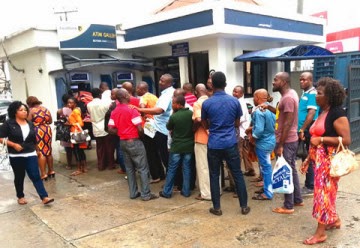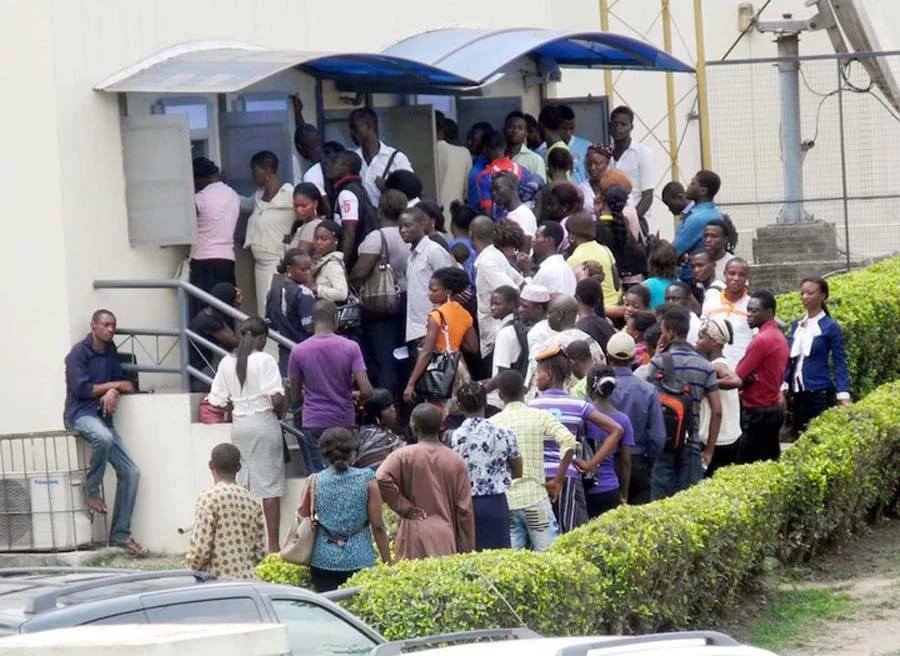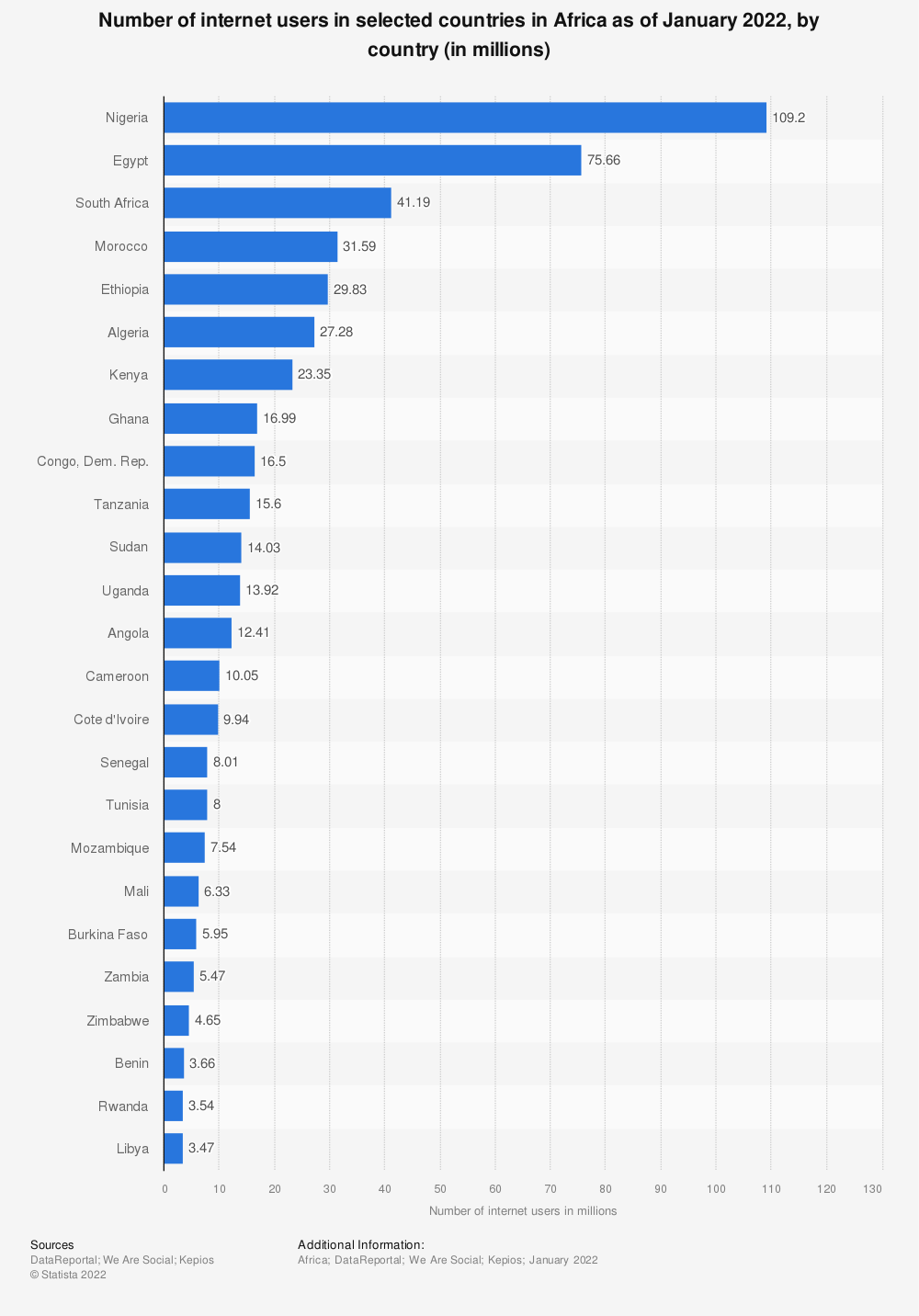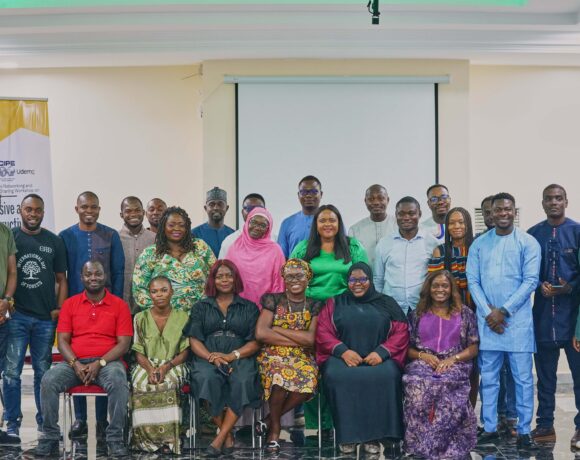Is Nigeria prepared for Emefiele’s cashless policy?

Cashless monetary policy is the way to go, but Nigeria needs to deepen digital literacy as the starting point.
By Daniel Adaji
Key points:
- Internet penetration is barely above average
- Digital literary is also not impressive
36 per cent of Nigerians, over 50 million, are not literate - Poor Nigerians cannot procure android mobile phones for online business transactions.
- There is high risk of identity theft and internet fraud
Frustrated at her bank’s Automatic Teller Machine (ATM) which does not dispense the N10,000 she needs to purchase food items in the market, Jamila Daniel (not real name), treks to Utako Market in Abuja.
Armed with her ATM card and the chorus from the Central Bank of Nigeria (CBN) that Nigerians should opt for e-transactions instead of cash, Jamila is confident that she would purchase vegetables and garri for her family’s dinner, with the use of her ATM card.

Queues of bank customers at ATM service-points
However, to her dismay, the vegetable seller does not have a Point of Sales (PoS) machine for the e-transaction. With little digital literacy, the vegetable seller has no confidence in bank transfers. She wants her cash.
Jamila finds a PoS operator, who insists on taking N500 commission for N5,000 cash withdrawal. But the net banking network is frozen. The operator makes over a dozen attempts to withdraw the cash from Jamila’s account, but they fail.
Too many persons in the market need cash, which is not available
Jamila moves to the next PoS operator for another attempt. The young lady has no cash, neither redesigned Naira notes nor old notes.
Too many persons in the market need cash, which is not available. Welcome to the chaotic aftermath of the implementation of cashless policy by Central Bank of Nigeria Governor Godwin Emefiele. Introduced since January 15, 2023, the policy has almost grounded the economy, in spite of its potential to boost the digital economy.
Why is it so? Why would the CBN ask Nigerians to go cashless when the processes involved is very frustrating? Why is it frustrating?

Nigerians queuing for cash withdrawals at the ATM gallery photocredit: online
This report takes a look at fundamental factors:
Internet penetration: Internet penetration has to do with the percentage of persons who have access to the Internet and who have the knowledge and skill to use the Internet effectively.
In Africa, Nigeria ranked as Number 18 in Internet penetration
Data on the website of the Nigerian Communication Commission (NCC) put the Internet Penetration, as at December 2022, at 48 per cent.
In Africa, Nigeria ranked as Number 18 in Internet penetration, but in term of Internet users Nigeria is Number 1, with as many as 109 million out of a population put at 213 million. That is to say over 90 million Nigerians may not be conversant with the use of the Internet.

For a cashless economy to function effectively, there must be seamless access to the Internet. Even the USSD code requires mobile networks to function. One of the reasons while many e-transactions were difficult to complete may not be unconnected with Internet speed, due to congestion on the networks.
Digital literacy in Nigeria: This has to do with the number of Nigerians who can use the computer, tablets or smart phones effectively for learning or business activities. For effective cashless society, there is need for a high level of digital literacy.
For effective cashless society, there is need for a high level of digital literacy.
A 2022 World Bank Report on digital literacy in Nigeria put the figure at about 50 per cent. That is to say, of a population of 213 million, about 106 million have a measure of digital literary.
Those who are not digitally literate cannot operate effectively in a cashless economy.
How many Nigerians are sophisticated enough to use banking apps that require authentication on their smartphones? Perhaps, over 120 million Nigerians don’t have that skill or knowledge.
Literacy rate: To effectively engage in cashless transactions, a person must have a measure of literacy in reading, writing, and Mathematics. The literacy rate in Nigeria is very low.
The literacy rate in Nigeria is very low
The illiteracy rate in Nigeria is put at 32 per cent, far below 33 other African countries. This means 68 per cent of Nigerians a literate: https://www.indexmundi.com/map/?v=39&r=af&l=en
Access to digital devices: Digital devices include computers, tablets, and smartphones, preferably android, which could perform digital functions. As at June 2022, there were about 46 per cent of Nigerians who had access to mobile phones. To many who are poor (put at 133 million), the cost of procuring android mobile phones is too high. A good mobile phone costs as much as N40,000, an amount that peasant farmers and petty traders may find difficult to afford.
Identity Fraud: One of the major risks involved in cashless transactions is identity fraud, perpetrated by what, in Nigeria, is called Yahoo-Yahoo boys. On a regular basis, the Economic and Financial Crimes Commission (EFCC) has been at war with Internet fraudsters in every part of Nigeria.
The IT units of banks are suspected to constantly collaborate with fraudsters to steal customers’ savings through identity theft, using digital platforms. For instance, there are reports of the EFCC rounding up as many as 140 Internet fraudsters in Lagos in June, 2022 alone.

Suspected fraudsters paraded by EFCC, Photocredit: EFCC Anambra
How could barely digital literate Nigerians have confidence in the banking sector to the point of leaving all their cash in bank accounts under this atmosphere?
Cashless monetary policy is effective in countries that have developed digital economy, where the use of plastic cards (ATMs), mobile transfers, mobile wallet, credit cards, debit cards, and net banking replaces the traditional cash transactions.
No society is totally cashless, though many economies have the ambition of reducing cash transactions to between 15 per cent and 20 per cent of the currency in circulation. This is possible in the West where there is a high rate of numerical and digital literacy. Most transactions are carried out on digital platforms.
Many illiterate Nigerians will be at the mercy of Point of Sales operators
The three main reasons why many Central Banks insist on cashless economy are to curtail terrorist activities, counterfeiting, and other illegal activities which are said to be all funded by cash. But there are other motives behind governments’ desire to make economies cashless – taxation.
In a cashless economy, financial transactions could be easily tracked and effectively taxed. The people lose the freedom and confidence that comes along with holding cash in personal safety.
No doubt, a cashless economy is the way to go, but it must be a gradual process. Already, some Nigerians in urban centres are familiar with mobile and online banking. They use USSD codes to transfer cash, pay bills, and purchase goods online. But these Nigerians are a very few minority.

NCC broadband subscription and penetration data 2022
Online banking has not penetrated as deeply as is necessary for a seamless cashless transaction.In implementing cashless economy, Nigeria must first of all aggressively invest in digital literacy.
Unless there is a robust digital literacy initiative that will deliberately move to the rural areas to teach the people how to use digital equipment, a total cashless policy will not be effective.
Many illiterate Nigerians will be at the mercy of Point of Sales operators, most of whom have started exploiting the people with heartless charges on cash withdrawals.
The Insight Report
Nigeria Coverage




AKUH M.A. says:
There can’t be a cashless economy without the provision, protection and implementation of the key factors that should aid the easy transition to the proposed cashless economy.
A machine is said to be functional when the buttons are in working conditions. In other words, enforcement of a “good idea” is only obtainable when the “buttons” are in working conditions.
What a country of deceptive, heartless and self-centered leaders!
God save Nigeria!
Theophilus says:
I agree with you. First things first. We must build the culture and infrastructure for a cashless economy before we upload it into the society.